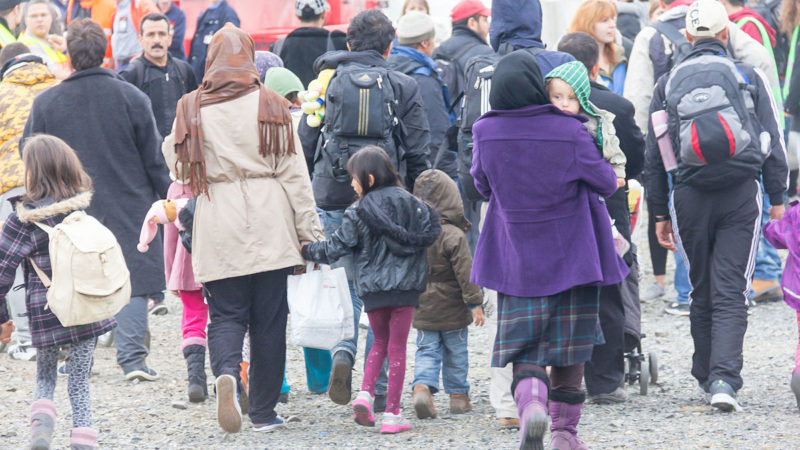Britain has a proud history of taking in those fleeing war and persecution. But we are falling behind on our responsibilities.

Pic: Refugees arriving in Germany, 2015
In the heart of my constituency there is a poignant reminder of the horrors child refugees have endured – and what Britain has done to help them.
Not refugees from the most recent tragic events around the world, though. This is a permanent exhibition to remember a group of kids we call The Windermere Boys, three hundred lads who came to Cumbria after the Second World War.
The Windermere Boys had been saved from Auschwitz and other concentration camps, and brought to a quiet corner of England to rebuild their lives.
They had survived things that no child should ever experience. Many lost their whole families – parents, brothers and sisters – as genocide swept across Europe. By 1945 they were starving and abandoned.
But they found a new home here. I am proud that, on my patch, they lived out their childhoods in peace. These days the children and grandchildren of the Windermere Boys are spread all over the country.
I thought of them again when I was out on the Greek coast in 2015.
I was there to meet another generation of child refugees, who had fled the horrors of war and violence.
This was the year when boat after crammed boat was arriving on the European coast. The majority were from Syria, trying to find safety from that bloody civil war. But there were kids, too, from other countries where parents could no longer be sure that their children were safe.
One family I met was from Iraq. The mum was a nursery teacher, their dad a mechanic.
Their daughters were five and seven years old, and for hours during the treacherous sea crossing their parents had sung them nursery rhymes. They didn’t want the children to think about the dangers they faced on that journey. They did what parents do, and tried to make their kids feel as safe as possible.
But they knew what was happening around them. I will never forget what the father told me about that terrible trip: “The fear of death was all around us.”
This is no life for a child.
I don’t know where those two little girls ended up next. Maybe they stayed in Greece, shunted from one refugee camp to another. Maybe – hopefully – they moved on and found somewhere permanent to settle.
We should be proud that Britain helps fund camps, as somewhere for desperate people to find shelter and security, but refugee camps are no place for a child to grow up.
That includes those camps right on our doorstep. We have seen what is happening in Calais, less than a hundred miles from London.
When I was there I met a young boy and his friend. They weren’t related but they were close, two great mates.
These boys were fourteen and one of them, after breaking his leg, used a wheelchair. And they were both still there in Calais – because the other boy wasn’t going anywhere without his friend. Kids like him follow a desperate journey to reach France, but he wasn’t about to abandon his best mate.
The government made a promise to kids like these, the so-called ‘Dubs amendment’.
If they have family in the UK, they were told they could come here and rebuild their lives, supported by their loved-ones.
But the government broke that promise.
Only a few hundred children were ever allowed in, a far smaller number than originally discussed. Our government turned its back on the rest. I was appalled that ministers would break a promise to such vulnerable young people, and so were other MPs from right across the political spectrum.
The government should honour that promise and let children join their families here. It should also help children reunite with their families in the UK, and a bill is before parliament right now, supported by leading NGOs including Refugee Council, British Red Cross, Amnesty International and SOS Children’s Villages UK, to try and guarantee that. It is the very least we can do.
And the system for resettling refugees into Britain can be more generous and flexible.
It has already saved lives – nearly ten thousand people have come to the UK under the scheme since 2015, more than half of them children. Councils and communities across the country have stepped up to look after people in need.
This is Britain at its best. But the existing scheme ends in 2021, and we want to make sure we remain flexible and generous for people after that date.
Where children are in danger, or families are forced to flee and find sanctuary, Britain can lead the world by our example.
Tim Farron is the Liberal Democrat MP for Westmorland and Lonsdale. He is also the Refugee Spokesperson for the Liberal Democrats.
Left Foot Forward doesn't have the backing of big business or billionaires. We rely on the kind and generous support of ordinary people like you.
You can support hard-hitting journalism that holds the right to account, provides a forum for debate among progressives, and covers the stories the rest of the media ignore. Donate today.



